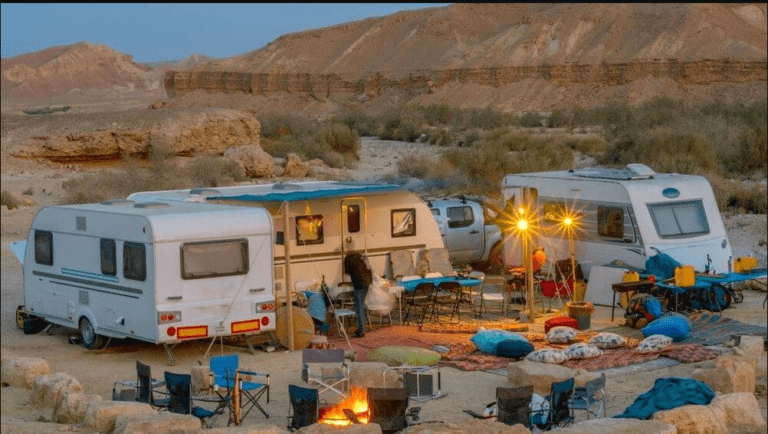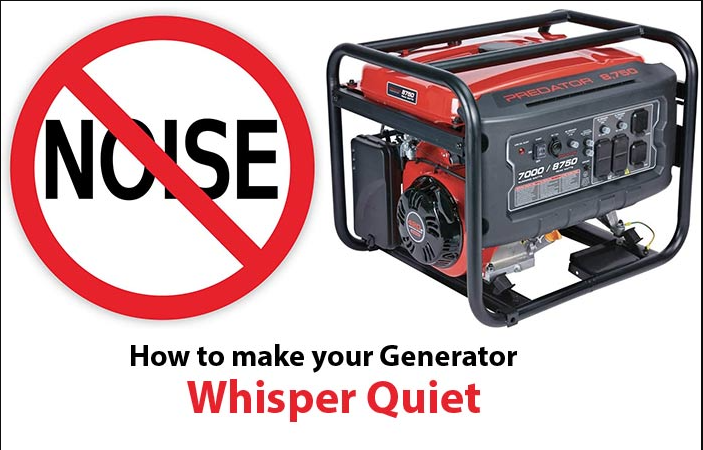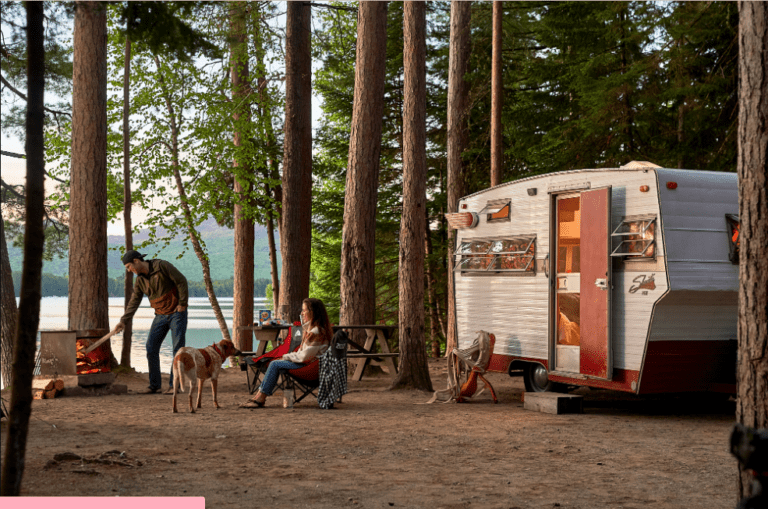Best Ways To Make Pest Control For RVs
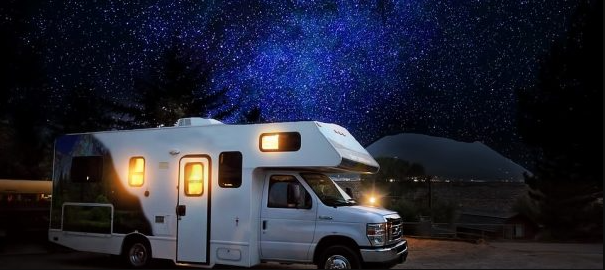
RV Pest Control: Keep rodents, snakes and insects out of your RV
One of the biggest complaints among RV owners is how to deal with unwanted pests in their RV. Especially for those who camp in the woods or keep their campers in storage, preventing and eliminating unwanted pests is just part of owning an RV! By using the right RV pest control methods, those pesky mice, snakes, bugs and spiders will stay out of your motorhome or camper where they belong!

Have you ever boondocked or camped or boondocked in the woods only to come back with unwanted visitors? Or, do you pull out your camper only to find it infested with rats, snakes or bugs?
Oh, trust me, it all happens. And if you don’t practice good pest control in your RV, you’ll be chasing this problem forever. And, those unwanted pests can be extremely destructive and present serious health consequences for you and your family.But, if you know how to prevent pests from getting into your RV, you’re way ahead of the game!So, you’ll want to try these insect repellents before those creepy crawlies even think about taking up residence in your RV.
- Always On Liberty – RV Pest Control Tips
- This blog article contains affiliate links. Full disclosure here.
- RV Pest Control: Keep rodents, snakes and insects out of your RV
- How RVs Get Unwanted Bugs
- Pest infestations usually start with a single infestation of insects or worms, spiders, rats, cockroaches, and even snakes.
- Insects eat anything that tastes good to them. including human food. And, they tell their bug friends about the treat you have in your RV.
- But, if you ignore the one or few bugs that get into your camper, you’ve opened the door and laid out the welcome mat for other nasty bugs to get in.
- Unwanted spiders will move in because their food source is small insects. And, those spiders will start growing!
- Then, when the temperature outside drops, mice bring their hobo bags and make themselves right at home in your camper. Even when you least expect it.
- Mice love to eat scraps of food, small insects, and your RV’s wires and cables (we’ll get to that later).
- Now, unless there are humans and cats around to disturb their party, mice will find warm and cozy places to have babies… lots and lots of babies! Thus, now you have mouse disease.
- And, you know that little hole that cute little mouse got into your RV? It’s big enough for a snake to get in because a) it wants to get out of the cold and b) what’s its favorite dish? Yep, you guessed it. Mice!
- In other words, snakes can take refuge in your camper if and when small rodents are present. And let’s just say, you don’t feel bad when you find a snakeskin inside your RV!
- Your RV has become the counterpart to an episode of Omaha’s Wild Kingdom building a food chain. A food chain is a hierarchical series of organisms that each depend on the next as a source of food.
- So, as graphic as it sounds, this should be reason enough to practice good RV pest control! And, we’re going to show you not only how to prevent unwanted pests in your RV, but also how to eliminate existing ones.
- Pro tip: Stink bugs taking up residence in your camper? See how to get rid of STINK BUGS in your RV! *Stink Bug Prevention Tips*
- Eliminate all food sources.
- RV Storage Pest Control – Ants
First and foremost, the easiest way to help prevent hungry rodents from entering your RV is to eliminate their food sources. This is one of the best ways to get into the habit of keeping you and your family safe, but also your RV.
You need to remove all food and even food scraps from your camper at all times. Even when you are winterizing your RV or preparing your RV for storage,
It means every morsel, morsel, spill, drip; Even the smallest food scraps from your RV.
So, always be on the lookout for food residue on your floor, in your cupboards, dining room benches, counter tops, stove and oven etc.
Even a small amount of dry kibble your dog dropped in the furnace vent is an invitation to unwanted insects in your RV.
Clean your RV thoroughly.
- Cleaning
- The above is exactly why cleaning your RV thoroughly is incredibly important. And keep it clean. Even when you’re putting your RV into storage.
- You need to eliminate the possibility of insects harboring in your camper or motorhome such as bugs, spiders, and rodents that remove the food scraps mentioned above.
- As we say on ships, field day your RV from stem to stern.
- So, start by getting out the vacuum cleaner to suck up everything in every nook, cranny, crevice, and cranny of your RV.
- Then, make a warm soapy water solution (with disinfectant) and your pores.
- Keep the bed clean
- RV bedding
- When you are cleaning your RV, you will also need to keep all bedding, pillows, sheets, towels, face cloths, etc. clean and fresh.
- Because rats and even ferrets love anything made of fabric because it’s warm, comfortable and… the perfect breeding ground.
- By changing your bedclothes regularly, you are constantly irritating the area. Free from unwanted pests.
· Besides, it’s just good hygiene anyway. Don’t you like to sleep on clean sheets?
- If you’re putting your RV into storage, you’ll need to take all your clothes home. Don’t leave them in your RV. Once cleaned, you can store them all in space bags or a large storage tote until you move your motorhome or camper out of the RV storage facility.
· Keep an eye on furniture and mattresses
- Unless you have an unwanted pest infestation, I recommend cleaning in, under and around your furniture and mattresses at least once a month. This includes all sofa cushions and throw pillows.
- That piece of popcorn or corn chip will get you moving those mice with their little hobo bags.
- I know this can be a pain in the butt but you may want to open up your RV mattress for inspection and take it down for a good cleaning at least every other month.
- You definitely don’t want to wake up in the middle of the night with a spider bite or bed bug.
- Also, I highly recommend getting a six-sided mattress cover. This will protect your mattress from insect infestation. Every few months, I remove it to wash and dry on high heat.
Rat Control – Mattress Covers
You’ll want to place some desi-pack between the bottom of the mattress and the encasement, as well as the top of the mattress to help prevent mattress mold.
RV Pest Control: Traps and Insecticides
As you’ve just removed all the food and cleaned the inside of your RV like you’re preparing to visit your mother-in-law, it’s time for a little RV pest control intervention and prevention.
If you’ve found insect infestation (mouse droppings, insect or spider carcasses, snake skins, etc.) you’ll need to install some pest control traps.
RV Pest Control: Insects and Spiders
For insects and spiders, you will need to apply a pet-friendly, child-safe pest control product (insecticide). Per the manufacturer, you need to reapply according to their recommendations.
Be aware that you will need to reapply any time you wash existing pesticides off any surface.
If you are going to sit the RV outside, dust your leveling jack pads and the bottom of your RV with diatomaceous earth.
Diatomaceous Earth is a natural, food-grade, miniature insecticide that kills fleas, ticks, ants, cockroaches, slugs, bed bugs and more within 48 hours of contact.
Diatomaceous earth
Apply liberal amounts to the ground under your RV, on and around your leveling jack pads and tires. Also, apply the powder to the inside corners of your RV’s basement and exterior storage compartments. You may want to reapply after washing your RV or shower.

A word of caution when using diatomaceous earth. While it’s perfectly safe to use around humans and pets, you don’t want to inhale or inhale it.
Therefore, I highly recommend wearing a face mask during application. Especially in confined spaces. Also, you may want to wear safety glasses to avoid eye irritation.
For the inside of your RV, to deter and kill unwanted insects and spiders, I recommend spraying all edges and corners with Ortho Home Defense insect killer.
It kills home invading (or RV invading) pests such as ants, cockroaches, spiders, fleas, ticks, scorpions, beetles, silverfish, centipedes and millipedes.You can also use it in your basement and under your RV.
If you’re looking for a natural disinfectant formula, mix equal parts white vinegar and water in a spray bottle. While we haven’t tried the natural method, we’ve heard it works.
Supposedly, when you spray any area where spiders congregate or enter. Vinegar contains acetic acid, which is believed to kill spiders by burning them on contact.
Some RV owners also claim that you can keep small open containers of full-strength vinegar in dark corners to repel spiders.Whether or not this is just an old wives tale, well, you can be the judge.
For insect traps, you’ll want to set up TERRO Liquid Ant Killer insect trap ‘bait stations’ where ants and spiders will drink or lick the poison and carry it back to their nests.
Tarot worked perfectly when we had a mild ant infestation in Florida. They are quite cheap and easy to use.Simply place bait stations near any access points where ants or small insects can enter your RV. This includes under kitchen cabinets, cupboards.
Winter Pest Control Tips for RV Living
Winter Pest Control Tips for RV Living
Winter is an exciting time for those of us with RVs. For many, this means taking the RV to warmer climates and making it a winter home. Hardy folks can get outside, brave the elements and try winter camping.
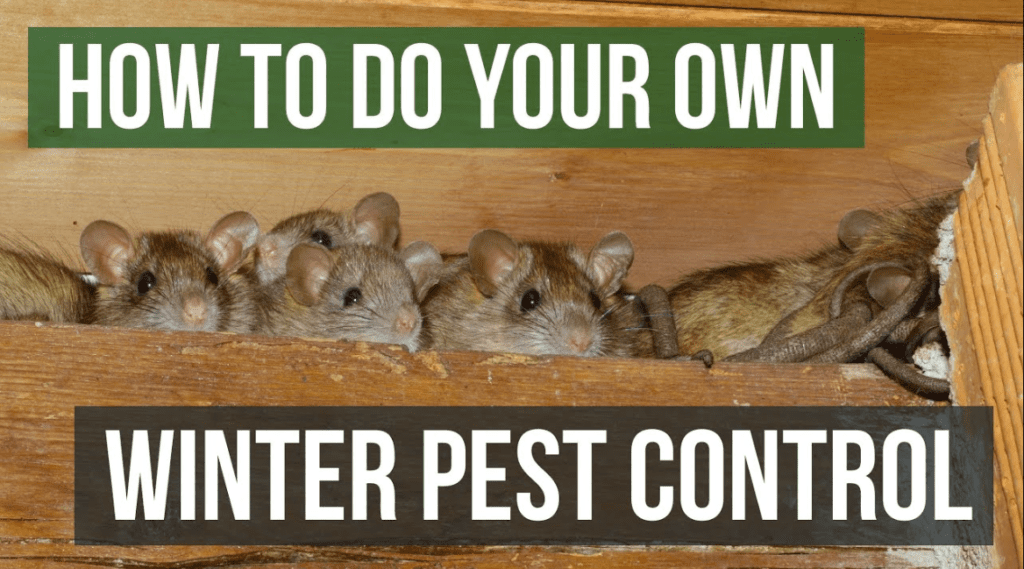
Others put the RV in storage until warmer weather arrives in the spring. The key connection between all of these scenarios is that the cold weather that comes with winter forces us to change how we use our RVs. Unfortunately, the same is true for pests that can infest your RV. They’re also looking for better places to live and shelter during the winter, and your RV can make the perfect spot. Here are some ways to keep pests out of your RV, as well as how to deal with them if they do get inside.
The main pests you will have to deal with in the winter are mice. Ants can also be a problem in warmer climates. Other insects such as mud dabbers, wasps, and bees go dormant during the winter except in extreme southern regions. Even there, their activities are generally reduced. In the case of wasps or mud boxes, check your RV for nests in the fall and remove them. That should take care of any issues until spring arrives.
Cleaning your best bet against unwanted visitors in the winter.
Your best option in dealing with pests is prevention. These critters will enter your RV in search of food, water or shelter. If you can eliminate any of these from the equation, you can go a long way to preventing them from coming in and staying. First, make sure you clean your RV from top to bottom. Clean drawers, refrigerator, cupboards, under sofas etc. If you have in-floor HVAC registers, remove the covers and clean the ducting as much as possible. These are all places where you could have collected food particles while using your RV. If your RV is going into storage, remove anything that could be used as a nest such as toilet paper rolls, and soft cloth items. By removing any food source or nesting material, you remove most of the incentive for these insects to get inside.
Where you park or store your RV can also be a big factor. If possible, avoid long-term storage or parking near wooded areas, wood piles, overgrown fields or low-lying buildings. These areas often harbor bugs and the closer you are to them, the easier it is for bugs to jump onto your rig. Also, when you arrive at a site, take a quick look around and check for signs of ants or other critters before setting up. If you see anything that looks like a problem, see if you can change sites or if park management can do something to alleviate the problem.
Once set up, rope lights on the ground around your RV can be an effective deterrent to rodents or other nocturnal animals. There are some differences in the colors of light that different critics can see so covering the spectrum with white light is the best option. Leave them on overnight for best protection. If using the lights is a problem, or you are storing your RV and don’t have power, throwing some bug balls under the RV can also be effective.Mothballs in Bulk Packaging (Source: Amazon Marketplace)
Borax Insecticide
Finally, a mixture of borax and sugar water can be sprayed on the ground around the outside of your RV. The sugar will attract ants who will pick up the borax and bring it back to the colony and kill it. Borax is toxic to pets and animals so make sure it is safe to use in your area. If not, food grade diatomaceous earth is a good substitute. Spread it around your RV dry (water kills it’s effectiveness) and it will keep most bugs (ants, fleas, ticks, etc.) from getting into the safe.
An ultrasonic pest repeller such as Exom Essentials or the TBI Pro Ultrasonic Pest Repeller can be plugged into a wall outlet in your RV. They make an ultrasonic sound that repels insects. The sound is inaudible to humans and most pets, but it would probably disturb rodent pets such as gerbils or hamsters. Their effectiveness is open to debate, but they are reviewed online, relatively inexpensive and probably worth the investment. Most models plug into your 120V outlets so they require shore power, a generator or inverter to operate while docked. There are 12V-powered options like the New RAM Technology AutoCar Ultrasonic Animal/Mouse/Rat Pest Repeller that can run on your battery or solar system when you’re off the grid.It is also best to proactively deal with pest problems. Kitchen or bathroom.
In almost three years on the road, (in all of America) we have never had one mouse, rat, cockroach, or ant (and very few spiders)! We use a few methods that we think help us accomplish this. While we can’t know for sure which of them had the most utility, here are the things we’ve done since day one!
RVs are built fast! This means that there may be some gaps and holes that provide direct access from the bottom of your RV to the inside! Inspect the underside of your RV and fill any gaps (even small ones) with Great Stuff Paste Block (link below). If an area is too large to hold the foam insulation, you can try building it in sections, or use something like chicken wire to fill the gaps with foam.
Examples of places to check are spare tires, dump valves, low point drains, etc. Be sure to also check the coroplast itself and make sure it is secure against the frame around the RV.
Be sure to fill the space between your living space and the basement as well. That way, if a rat or other pest somehow makes it into your RV, they’ll have a harder time getting into the living space. Use the same grout to fill areas where plumbing and wiring come from the basement, such as under each sink.
Botanical Pest Repellent
We like the “Stay Away” and “FreshCab” brands of botanical (natural) insect repellent pouches (links below). They come in compounds designed for specific types of insects such as ants, spiders and rats. We buy a few of each, put the rodent and ant repellants in various places (usually in corners) along the floor, and put the spider pouches in high places like behind the TV, on top of cabinets, and in our office. I’m on the bank. . / Garage.Additionally, we keep a few of each in our basement and storage compartments.Ultrasonic Insect Repellent
In addition, we also purchased a six-pack of ultrasonic pest repellent devices and placed them in each room as well as in the basement. We replaced them all around the 2 year mark just in case one of them lost its usefulness due to age and/or RV vibration. We have no idea if this is the case, but we figured we could use a new set.Lights
Our RV has blue underbelly lights that we leave on. These are not cap lights, which are a bit controversial, but the ones on the bottom of our RV. We’ve heard these lights can deter pests, and last year got a little confirmation when some of our full-time RV friends had rat problems. They started leaving lights on under their bellies at night and no more mice!
If your RV does not have this feature, it can be accomplished by using top lights. Just get a seat that won’t disturb your neighbors.Eliminate active ant hills.
When we set up camp, I’ll walk around the RV and look for any ants trying to climb our tires or leveling system. If I find any, I spray some Spectracide Ant Shield and/or food grade diatomaceous earth. We’ve only been using Diatomaceous Earth for a few months, but it seems to do the job in a more eco-friendly way than Spectracide. I would only use them on and around my landing gear and tires where we would see ants.
In almost three years on the road, (in all of America) we have never had one mouse, rat, cockroach, or ant (and very few spiders)! We use a few methods that we believe help us accomplish this. While we can’t know for sure which of them had the most utility, here are the things we’ve done since day one!
RVs are built fast! This means that there may be some gaps and holes that provide direct access from underneath your RV to the inside! Inspect the underside of your RV and fill any gaps (even small ones) with Great Stuff Paste Block (link below). If an area is too large to hold the foam insulation, you can try building it in sections, or use something like chicken wire to fill the gaps with foam.
Examples of places to check are spare tires, dump valves, low point drains, etc. Be sure to also check the coroplast itself and make sure it is secured to the frame around the RV.
Be sure to fill the space between your living space and the basement as well. That way, if a rat or other pest somehow makes it into your RV, they’ll have a hard time getting into the living space. Use the same grout to fill areas where plumbing and wiring come from the basement, such as under each sink.
Plant insect repellent
We like the “Stay Away” and “FreshCab” brands (links below) of botanical (natural) insect repellent pouches. They come in formulations designed for specific types of insects such as ants, spiders and rats. We buy a few of each, put rodent and ant repellants in different places (usually in corners) along the floor, and put spider pouches in high places like behind the TV, on top of cabinets. , and in his office. I’m at the bank. . / Garage.Additionally, we keep some of each in our basements and storage areas.
Ultrasonic Insect Repellent
In addition, we also purchased a six-pack of ultrasonic pest repellent devices and placed them in each room as well as in the basement. We replaced them around the 2-year mark just in case one of them lost efficacy due to age and/or RV vibration. We have no idea if this is the case, but we thought we could use a new set.
Lights
Our RV has blue underbelly lights that we leave on. These are not cap lights, which are a bit controversial, but the ones on the bottom of our RV. We’ve heard that these lights can deter pests, and last year got a little confirmation when some of our full-time RV friends had rodent problems. They started leaving lights under their bellies at night and no mice!
If your RV does not have this feature, it can be accomplished by using top lights. Just get a seat that won’t disturb your neighbors.
Eliminate active ant hills.
When we camp, I’ll walk around the RV and look for any ants trying to climb our tires or leveling system. If I find one, I spray some Spectracide Ant Shield and/or food grade diatomaceous earth. We’ve only been using Diatomaceous Earth for a few months, but it seems to do the job in a more eco-friendly way than Spectracide. I would only use them on and around my landing gear and tires where we would see ants.
So you’ve finally made the decision and bought a nice RV, 5th wheel or trailer and spent your hard earned money on it. Now what? Well, now you have to do what you can to protect your new asset. In this blog we will look at one of the leaders in damage to your RV after purchase……insects and rodents!!
So you’ve finally made the decision and bought a nice RV, 5th wheel or trailer and spent your hard earned money on it. Now what? Well, now you have to do what you can to protect your new asset. In this blog we will look at one of the leaders in damage to your RV after purchase……insects and rodents!!
We’ll look at preventative measures, home remedies and even some commercial products you can buy in your new home to keep these critters at bay!
Preventive measures
The easiest way to keep your RV pest and rodent free is to minimize the possibility of them entering your RV. There are a number of things we recommend you do as part of your biennial inspection that can help prevent these critters from entering your castle.When in use, invest in airtight plastic bags or containers for your food and don’t leave food out in the open for too long.
Before storing your RV, remove all food from your refrigerator and cupboards.
Before storing your unit, thoroughly defrost and clean your refrigerator and keep cabinet doors open to discourage nesting.
Check items like deodorant, shampoo, toothpaste and medicine, as they have expiration dates and can attract insects and rodents.
Keep your RV clean. Dust often and keep clutter to a minimum, especially in small spaces.
Check the vents for nests that regularly walk around you.
Plug all openings from the outside to the inside of your RV with expandable foam, steel wool or narrow mesh screens. Make sure you also inspect all openings in the firewall between your engine and the interior (anywhere pipes or wiring enter the interior).
The easiest way to prevent pests is to prevent them from entering!
Domestic help – more subtle ways
- While you can always turn to more aggressive techniques to protect your RV, we recommend using more subtle and natural methods in your pest control strategies. Here are some household items that can help:
- Use mothballs to prevent both insects and rodents from setting up shop in your RV. They can also be used in your outdoor storage compartments to discourage spiders, snakes and other insects from leaving. A general rule of thumb for worm application is 1 or 2 per 3 cubic feet.
- Dryer sheets in your closets and drawers will also work wonders. Mice, insects and other critters generally don’t like the smell – so they’ll avoid areas that contain them.
- The oil extract can be used as an excellent defense against all kinds of pests. Sprinkling eucalyptus or peppermint oil around door frames, floorboards, and other small cracks will essentially stop most insects from entering those areas. You can also use these oils to moisten cotton balls and keep them in cupboards and drawers.
- White vinegar can also be substituted as an insect repellent. Dissolve it in a water bottle and spray it on the above areas.
- If spiders are guests in your home, keep in mind that they hate lemons. Lemons, oranges or limes can be used either by rubbing their rinds around all cracks where they can get into your RV or using a spray bottle of water and lemon juice for a natural deterrent spray. Can be used in combination.
- When storing your RV outside, or even around a campsite – you can sprinkle talcum powder, borax or powdered sink cleaner around the outside to protect it from ants, spiders and other insects.
- Special Products – Aggressive Style
- If you don’t want to be fooled by home remedies or need something a little stronger to control or eliminate your pest/rat problem, there are a number of products specifically designed for this.
- Rat traps or poisons: There are both live and non-live traps that can help eliminate your rat problem. You may also consider a safe rat poison like the one shown below, available in our Sylvan Lake RV Parts Department.When it comes to camping, we firmly believe that the more the merrier…except when it comes to bugs.
- And unfortunately, living in a home on wheels makes your space more accessible to unwanted guests like ants, rats, spiders, and cockroaches.
Want to be close to nature, but don’t want to constantly walk armed with your trusty fly sweater or can of Raid? Hey, you upgraded from a tent to an RV for a reason!
Fortunately, there are ways to make your rig pest-free—or at least make it less inviting to bugs and rodents.Here are our top tips for controlling RV pests and keeping mice out of your camper.
Mouse proofing your RV.
Mice are one of the most common campground pests, whether you’re in a tent, cabin or motorhome. They’re fueled by the delicious-smelling food you keep in your camper, as well as the warmth and shelter possibilities.
But if you don’t want your rig to become a mouse house, you have a number of options and steps to take to make them scrum. The first thing you have to do: block their entry points.
Mice, unlike insects, are very large creatures. They can’t slip under a door or through a drain – although they can fit through any hole a dime or larger in size. (They just have to be able to squeeze their heads in!)
So you’ll go a long way toward keeping rodents out of your RV by simply making sure that all of your doors and windows are closed and that any large openings that allow them to enter are sealed. Put screens on your doors and windows if you want to keep them open to the summer breeze, and use spray foam on any cracks or holes you know could get into your camper. Be sure to check along all the seams and corners of your RV, such as where the floor meets the walls.
If you’re already dealing with an infestation or want to be extra careful, you can invest in factory-made rodent repellents or even mouse traps. And don’t forget, whether you’re talking about mice or bugs, there’s one key factor when figuring out how to keep your camper pest-free: keep it as clean as possible!
Leftover food and dirt can attract bugs into your living space, so by making sure it’s as clean as possible, you’ll eliminate their incentive to enter. Keeping things clean will also help you stay healthy and prevent illness while traveling.
What keeps mice away from campers?
Along with keeping your RV clean, you can also try a natural DIY rodent repellent to deal with RV mouse control. This is a great remedy if you or someone you camp with has a sensitivity to harsh chemicals.
Mice are said to hate the scents of peppermint, cloves, and cayenne pepper, all of which come in oils and extracts that can be easily dabbed on cotton balls on your door or windowsill or in the kitchen at mouse hotspots. can keep on . Cupboards where food is kept. Oils cost between $10-$15, but you get enough for a lifetime in one bottle—and you can even use them for personal grooming.
Another natural mouse repellent that many RVers swear works well is using the same trick with plain old ammonia, which smells like cat urine (ie, a terrified mouse hunter). However, ammonia smells to people as well as rats, so you’ll want to proceed with caution!
RV pest control
Along with rodents, you may find spiders, ants, cockroaches and other unwanted many-legged critters in your RV. These bugs are smaller than mice and reproduce quickly, which can wreak havoc on your beloved camper if you’re not careful.
One key to keeping ants out of your rig is to make sure all dry food is stored in airtight, sealed containers, where the bugs can’t get to it. Investing in a quality set of storage containers is worth the money if it means you’ll avoid paying expensive RV pest control prices for professional bug bomb service in your camper!
Again, you can rely on factory-made bug repellents and insecticides, as well as ant and roach traps that use poison bait to kill the entire colony. A standard product that works well is Combat Gel, which can be piped into small crevices and areas where roaches and other insects live — such as along your kitchen counter or in your bathroom. It’s odorless and non-toxic, and will keep your RV living space safe from those little unwanted invaders.
Pest control for RV
Of course, no matter how clean your RV is or how much trouble you put into preparing for bugs, sometimes you’ll get an infestation. It’s just part of camping!

Pest control for RVs and campers
- When we think about pest control for our living space, we can all identify the home and workplace as obvious areas of concern. For many people, though, “living space” includes a recreational vehicle! Why don’t we want to protect this part-time living space? Here are some pest control tips for RVs and campers.
- Just because we spend relatively little time enjoying our favorite pastime, doesn’t mean the vehicles we use aren’t always at risk from pests. In particular, RVs stored in storage lots face a constant threat of unwanted visitors. These “vacationers” can take the form of roaches, ants, spiders, and even termites. The good news is that these pests can be well controlled and prevented.
- Recreational vehicles are attractive to insects for the same reason that homes are: food and shelter.
- For the sake of convenience in RVs (and faster transit next time), kitchen cabinets are often stocked with food items. Often they are stamped which is great! But sometimes, even the “good stuff” gets left behind – creating a perfect opportunity for ants and roaches.
- Pest control for RVs becomes more complicated than that, as they are often left unattended for long periods of time—and often pests from nearby areas naturally call home.
- Unpaved storage lots provide many opportunities for pests to enter your RV. Many facilities are simply enclosed in grass clippings, which can be difficult because it is difficult to mow properly. Left unchecked, weeds and grass can grow to touch the chassis and body of an RV. For insects, it’s a short trip inland from there.
Another problem is that an RV can sit unused for long periods of time. This provides a prime opportunity for pests to move into the family. Colonies of ants and roaches will thrive when undisturbed in the sheltered environment of your RV.
Storing your RV on a concrete pad near your home will prevent pests more effectively, as it can benefit from the same pest control measures used to protect the home. For example, ants that forage near the house will not survive to get into the RV. The closer the RV is to the home, the more effective the treatment can be.
It’s the perfect time to discover that vacationers are already using your RV, it’s not your first night with your new wife…and there’s no bug spray in the cabinet. Sure, it can make for a memorable first trip, but it could also be the last trip of your wedding!
Even if you’ve been married for years, an unlucky saw palmetto bug in the RV could mean you’ll never be “on the road again.” You may even be forced to sell the rig by “upper management”! Horror!
Here are some helpful tips for keeping your RV rodent and insect free during storage.
We recently received this question from one of our guests. We plan to leave our fifth wheel in Florida (outside) for six months. We have electricity available at the storage site. Does anyone have any hints or tips for keeping our RV mold free and keeping our RV rodent and insect free during storage?
First let’s solve the problem of preventing mold. We have a great article in the RV Lifestyle Articles section of our website called RV Tips for Keeping Your RV Mold and Mildew Free. I’m sure this will give you the proper steps you need to take to prevent mold and mildew from forming.
Now let’s talk about bugs. Here are some simple tips to prevent insect infestation in an RV while in storage. Some of them are common sense and some of them are unique solutions that RVers have come up with and say they work.
Just a heads up for you; These tips will work for summer and winter storage. But I don’t guarantee that all these tips work but give it a shot. Let’s start with the easiest steps first.
Make sure you remove all fruits and vegetables from the RV before storing. Rotting fruits and vegetables and produce attract all kinds of creepy crawlies. This is especially important if you have children or grandchildren who have traveled with you. Maybe they put a banana, apple, or orange in a drawer or cabinet, so they can eat it later, but they forget to eat it later. I know this from experience.
Remove all other food items from your RV unless they are canned or bottled.
Get rid of all standing water. If your RV’s refrigerator has an ice maker, make sure you drain the water out of it.
Camco Flying Insect Screen
- Install insect screens on the exterior of your RV for your RV’s refrigerator, furnace, and hot water heater. This will prevent both insects and rodents from entering your RV through these exterior openings. Take a look at the video below for more information on using insect screens to protect your RV.
- Nice Sam’s Club
- Sam’s members in good standing enjoy instant discounts on fuel. Join today!
- Plug all sink drains; Make sure the toilet seats are down. Cover the shower or bathtub drain (yes, some RVs have bathtubs).
- Turn off the propane at the tank, not only is this a safety tip, but it also deters small insects that love the smell of propane from congregating in the stove and refrigerator area. Incredibly there doesn’t have to be a propane leak, these little critters somehow manage to detect it and are drawn to it like a moth to a flame.
- Make sure all windows, exterior doors and slide-outs are tightly closed.
- If you’re storing the RV in an area where pets, etc. can’t reach it, spread roach powder and ant powder around tires, leveler jacks, etc. Note that if it rains, the powder will have to be reapplied.
- Since your RV is going to be connected to electricity, make sure the RV’s power cord is not touching the ground.
- Check for any spaces under your RV that could allow insects or rodents to crawl in. Do the same for the interior, around slide-outs, cabinets, etc. If you see some gaps, go to the hardware store, and get a can of expansion. Foam sealer and seal them.
- Make sure the inside of the RV is clean, I mean really clean, even a small patch is like a buffet for some rodents and bugs.
- Since you’ll have electricity, you’ll want to get some ultrasonic pest repellers. These devices plug into a normal electrical outlet. They produce a high-frequency sound that only mice and some insects can hear. This sound is supposed to drive them away. Be careful, if you have a pet or a pet rat, the sound will drive them crazy too.
- To prevent roach or ant infestations, sprinkle diatomaceous earth and/or 20 mol tem borax around and between cabinets, on floors and in any cracks. Do this carefully, as you will need to clean the RV when you are ready to use it again.Fresh Cabbage Non-Toxic Botanical Rat/Rat Repellent
If you have rodents infesting your RV and you don’t want to use poison to kill them, there is an all-natural rodent repellant that many RVers call Fresh Cab. Watch the video below to see how FreshCab works
Tips from other RVers
Now we list tips for keeping your RV rodent and insect free during storage, which I personally can’t believe, but in researching to answer this question I Discover these tricks and tips that other RVers swear by. The following items should be placed in bowls and spread freely around the RV.
These humane rat traps are simple and easy to use. You just press to set. Once the little boy takes a nibble of the recommended lure, he will only experience a 1-second fast.
You can also use glue mouse traps. It contains Eugenol; An insecticide-free, non-toxic enhanced adhesive that effectively traps mice, other rodents and insects.
They also trap a variety of insects, including spiders, roaches or scorpions. But to be honest I’m not a big fan because it doesn’t kill the rat instantly.
If you are putting your RV into storage and you use any traps, I recommend checking your RV storage facility regularly to make sure your traps are working. .
Always carry disposable nitrile gloves and a resealable bag to dispose of any expired mice and handling gloves. Otherwise, you may be faced with reducing the foul smell of dead mice.Professional exterminator
You can always call a professional pest control specialist or exterminator. But, why spend big money for them to use the same RV pest control methods you would use? Also, be aware that some products used by professional pest control companies are not ideal in small spaces such as RVs.
RV Pest Control: Snake Prevention
RV Storage Pest Control – Snakes
Snakes give me the willies. Even those out in their natural habitat. But once the RV is inside, it just won’t fly! And I’m sure I’m not alone.
When it comes to controlling RV storage pests, a snake infestation is a whole ‘nother ball of wax to contend with.
First, snakes will enter your RV for one thing only. They are hungry and track down small prey to eat.
And, if you find snake skin, that’s a big sign that you have rats in your RV. So, you basically need to get rid of the mice in your RV before you get rid of the snake.
If you think about trying to find a snake, let alone exterminate it, you may want to leave it to a professional exterminator (pest control specialist who specializes in dealing with snakes).
That said, there is a snake repellent on the market. But honestly, I can’t personally attest that it’s effective because we’ve never experienced a snake getting into our RV. So I can’t say whether it works or not.
do you know? RV LIFE Pro is the premier RV lifestyle suite that includes the #1 RV trip planning tool, the RV LIFE Trip Wizard. It also includes a mobile RV GPS app, an RV LIFE maintenance tracker, and RV lifestyle education with RV LIFE Masterclasses.
Final Thoughts on RV Pest Control
RV Storage Pest Control – Bugs Cockroaches
I know this article is a little weird but RV pest control is an important part of camping and living in an RV. Since our motorhomes and campers are usually in the wild or in areas where wildlife reigns, this is one of the downsides that RV owners must contend with.
Regardless of whether you’re hibernating your camper for storage or even camping in your back yard, you need to know how to keep unwanted pests in your RV. How to prevent and eliminate them.

